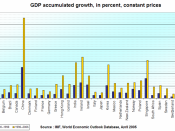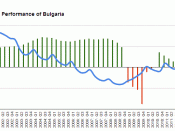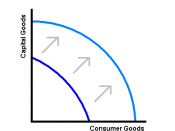Introduction:
Economic growth is the percentage increase in total output of the economy at constant prices. In another way, Economic Growth is defined as the way that the real income of an economy increases over time. Such increases mean that real incomes have improved and so probably have living standards. Thus the raising of the standard of living is closely tied to Economic growth. This generally signifies that the economy is wealthier and producing more, individuals are better off, and that living standards are higher. Economies need to make use if idle resources in order to grow. Once these have been utilized, an economy can only grow through increased productivity, i.e. grater output per person ( Sloman, Mark, 2000, pg 300). A more practical definition would go into the way that Economic Growth is calculated, generally in terms of the Gross Domestic Product which is the most common measurement of the income of a country; it is the sum total of the value of a country's output over the course of a year (Atkinson, 1995, pg 33).
On the other hand, GDP figures can be misleading, for example, a growing economy may have rising production levels but also may have a growing birth rate which works against any positive effect on the standards of living. Then again, figures that show clear growth in terms of wealth may be ignoring the fact that inflation rates are increasing as well.
These are two examples of economic growth in the second half of the 20th century. In the diagram, we see Gross Domestic Product per capita for the USA and the Republic of Korea. The U. S. data are shown with the vertically barred top line and the Korean data by the solid line (McCain, 1998,) www.drexel.edu.
The diagram illustrate that, among 1950...


